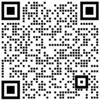 0
0








 0
0









Heisener Electronics is committed to supplying every customer with authentic and traceable components directly from the original manufacturers, authorized distributors and channels. Our expert QC team inspects and tests components in strict accordance with IDEA-STD-1010 standards to ensure the delivery of 100% genuine electronic parts. We partner with some best-in-class testing facilities like CXO Labs that deliver quality testing to mitigate counterfeits and reduce the risk of failure.
This is to check if the packaging is intact, anti-static, and vacuum sealed. Tape, reel, tray, tube and bulk should meet the standards. The item number, quantity and production date need to be valid.
The label information should be correct, with a clear and scannable barcode. RoHS, qb Free, factory QC, and seaI time will be inspected.
heisener Electronics pursues high quality, high efficiency, and high standard testing process to ensure that each product is tested at every level before shipment, and we strive to deliver perfect products to our customers, providing customers with a comfortable shopping experience and usage experience. With the power of quality, to create a one-stop intelligent procurement platform; with the power of trust, to provide new momentum for the development of electronic market trade.
We use microscopes or a magnifying glass to check the pins, manufacturing date, country of origin, and whether there are traces of polishing, unknown residues, scratches, cracks, uneven, dirty, incomplete, etc.
We check the silk screen information for its consistency with the label and specifications.
The silkscreen information will be wiped with acetone to check whether the printed text is clear, with no traces of renovation on the product's surface and the silk screen.
We inspect QFP/QFN Pin to see if the color and shape of the pins are normal, with no oxidation, deformation, burrs, damage, pollution, etc.
BGA inspections look at various aspects of the ball grid array, including the package's standoff height, the quality of the connections and more. Any ball that is oxidized, missing, flat, offset, damaged, or replanted will be discarded.
Scratch the surface with a scraper to check for signs of refurbishment.
To check whether the product package dimensions, pin position, pin pitch, pin length, width and package outline are within the scope of the drawing.
Mainly to detect whether the soldering ability of chip pins and solder balls is up to standard.
Decapsulation is a process used to expose the internal structure of an integrated circuit. We use instruments to corrode the package on the surface of the chip to check whether there is a wafer inside, the size of the wafer, the manufacturer's logo, the year of copyright, and the wafer code, which can determine the authenticity of the chip.







X-Ray test is a real-time non-destructive analysis to check the hardware components inside the original, mainly to check the lead frame of the chip, the wafer size, the gold wire bonding map, the damage and hole of the SED.
Functional testing is a method to test that the parts function properly and meet the defined specifications. We stimulate actual conditions while measuring the component’s performance.
A performance test involves testing of components to check their performance under different conditions, including different temperatures and voltages, which helps identify potential issues that may not become apparent during standard functional testing.